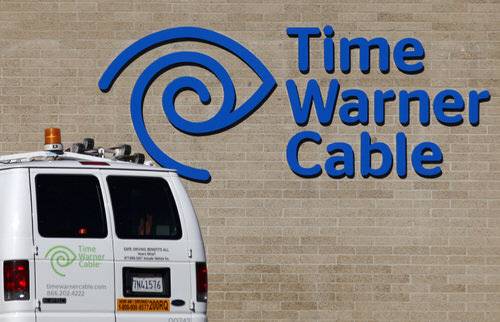
You’ll be forgiven if the first thing you said when you heard that Comcast is buying Time Warner Cable was, “Is this legal?”
Comcast will certainly want you to think this deal is legal, good, just, beneficial, charitable, divine, logical, reasonable—any term its lobbyists can think of to get this acquisition through federal regulators. But when the biggest cable operator in the United States buys the second biggest one for $45.2 billion in stock, plenty of questions need to be answered.
Control The Pipes, Control The Content
What the merger between Time Warner and Comcast really means is that the two companies will control nearly one-third of all broadband subscribers in the U.S. and an inordinate amount of the fiber that the Internet runs on. Neither of these companies has a good track record of playing nice with their infrastructures and want to control (and get paid handsomely) for all the data that runs on their tubes. The Time/Comcast partnership is about control and power over the Web.
See also: White Spaces & Dark Fiber: Internet Giants Angle For Control Of The Internet’s Pipes
Cable content will also get caught in the crossfires. Time Warner has long played hardball with content companies like CBS, which was blocked in 2013 in New York by the cable company. Have a serious addiction to the NFL and How I Met Your Mother? Yeah, Time Warner doesn’t really care about you.
Comcast and Time Warner will have a ton of leverage over content companies both on the Web and TV. It will be a monopoly power with wide-ranging effects over consumers, Wi-Fi and hotspot operators, Internet speeds, content companies like CBS and AMC, and over the top content providers like Netflix and YouTube.
Everybody Pays
What do these groups have in common? Everybody pays. And if they don’t, Time/Comcast will have the power and leverage to push them out of the ecosystem or make their lives very difficult. For instance, Time Warner does not put a cap on broadband data. Comcast does (at about 250 GB per month). Expect Time Warner customers to get that cap as soon as the deal is finalized.
The fact of the matter is that Comcast wants control of your broadband. It wants to control the last mile of the pipe that runs from the rivers of broadband into your home. Once it has that, it has all the leverage it needs to start throwing its weight around and making gobs of money in the process.
Regulators will take a hard look at the merger and approval is no sure thing. The U.S. Department of Justice and the Federal Communications Commission have not been kind to infrastructure mergers and acquisitions under the Obama administration. AT&T’s $39 billion bid to take over T-Mobile was shot down and just last week. Sprint/Softbank said it was seriously reconsidering its takeover bid of T-Mobile after talking to DOJ and FCC regulators.
Regulators: Infrastructure Vs. Media
The key will be how the DOJ and FCC view Comcast and Time Warner. The mergers in the cellular space are very clear-cut in that they are infrastructure, communications companies. Will the FCC/DOJ see Time/Comcast more as a critical infrastructure provider (which it is) or a media empire? If it is the former, getting through regulatory hurdles may be more difficult as the FCC and DOJ have shown a proclivity to promote competition (to the benefit of consumers) in the telecommunications space. If it is the latter, the FCC may strike a similar deal with Comcast that it did when it approved its NBCUniversal acquisition several years ago.
The difference between merger like Comcast and Time Warner and that of AT&T and T-Mobile though is that, for the most part, Comcast and Time Warner are not really competitors. Maybe they are in their respective realms of content (HBO vs. NBC, for instance), but even that is not a good comparison. Cable operators tend to be regional monopolies, with few competitors to their crowns. If you live in New England, you are probably a Comcast subscriber. You might have the option to use RCN or Verizon FiOS (in a very select locations), but Comcast is the king. Regulators may determine that there is no threat to consumers from a Comcast/Time Warner merger because competition isn’t stifled among two infrastructure companies that don’t compete for subscribers.
See also: Net Neutrality: What Happens Now That Verizon Has Vanquished The FCC
It is that NBCUniversal deal that creates a silver lining for consumers and competitors. The FCC forced Comcast to make significant concessions to regulators in that deal and those concessions have been a boon to consumers. The FCC made Comcast make it programming available online to TV and online competitors, expand the scale and speed of its broadband networks and abide by Open Internet rules to preserve the concept of net neutrality. The FCC lost its ability to regulate the Open Internet rules by an appeals court last month, but the FCC can still use the policy in negotiations with Comcast and Time Warner to ensure a competitive landscape.
Lead image by Reuters

















